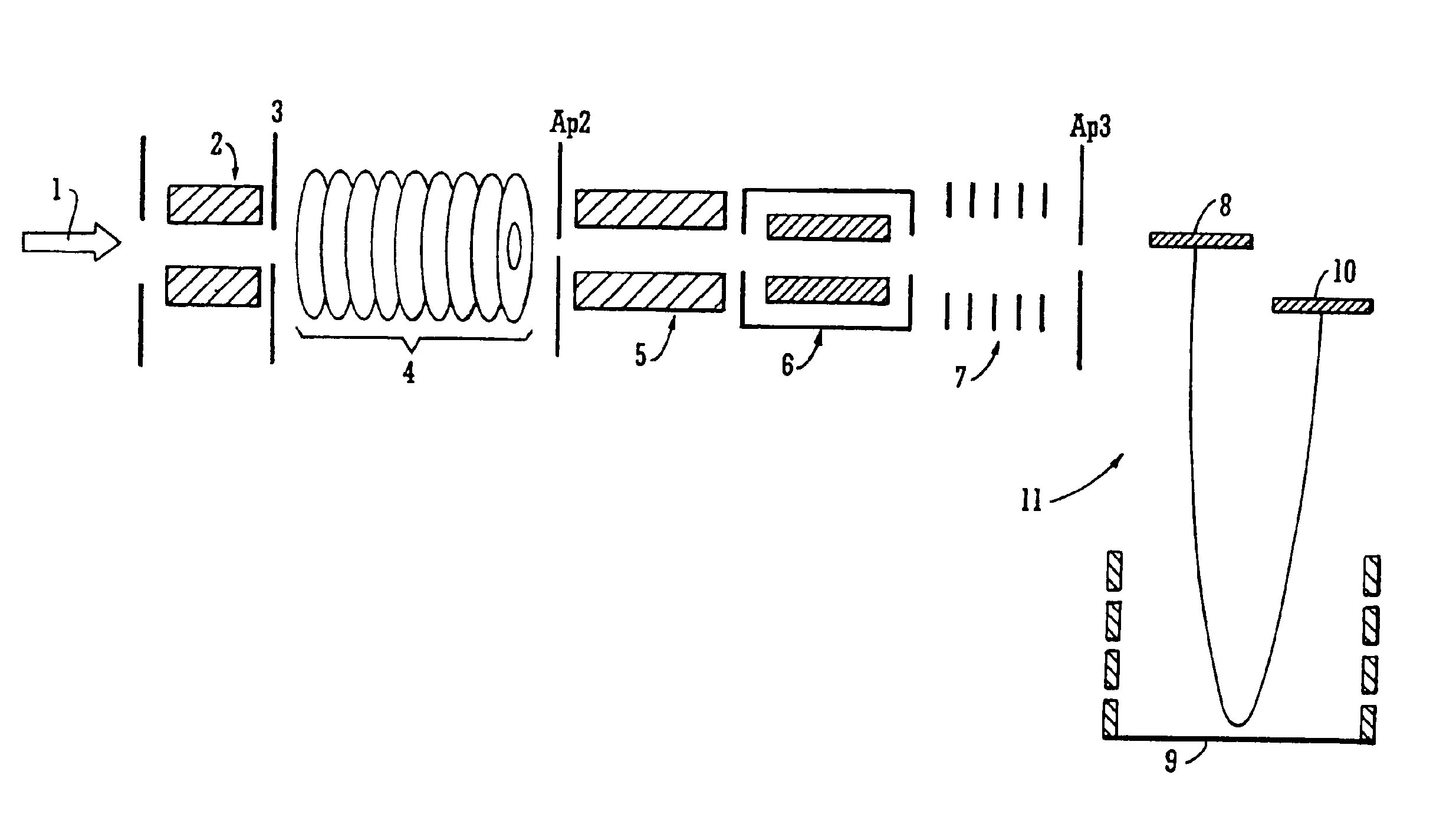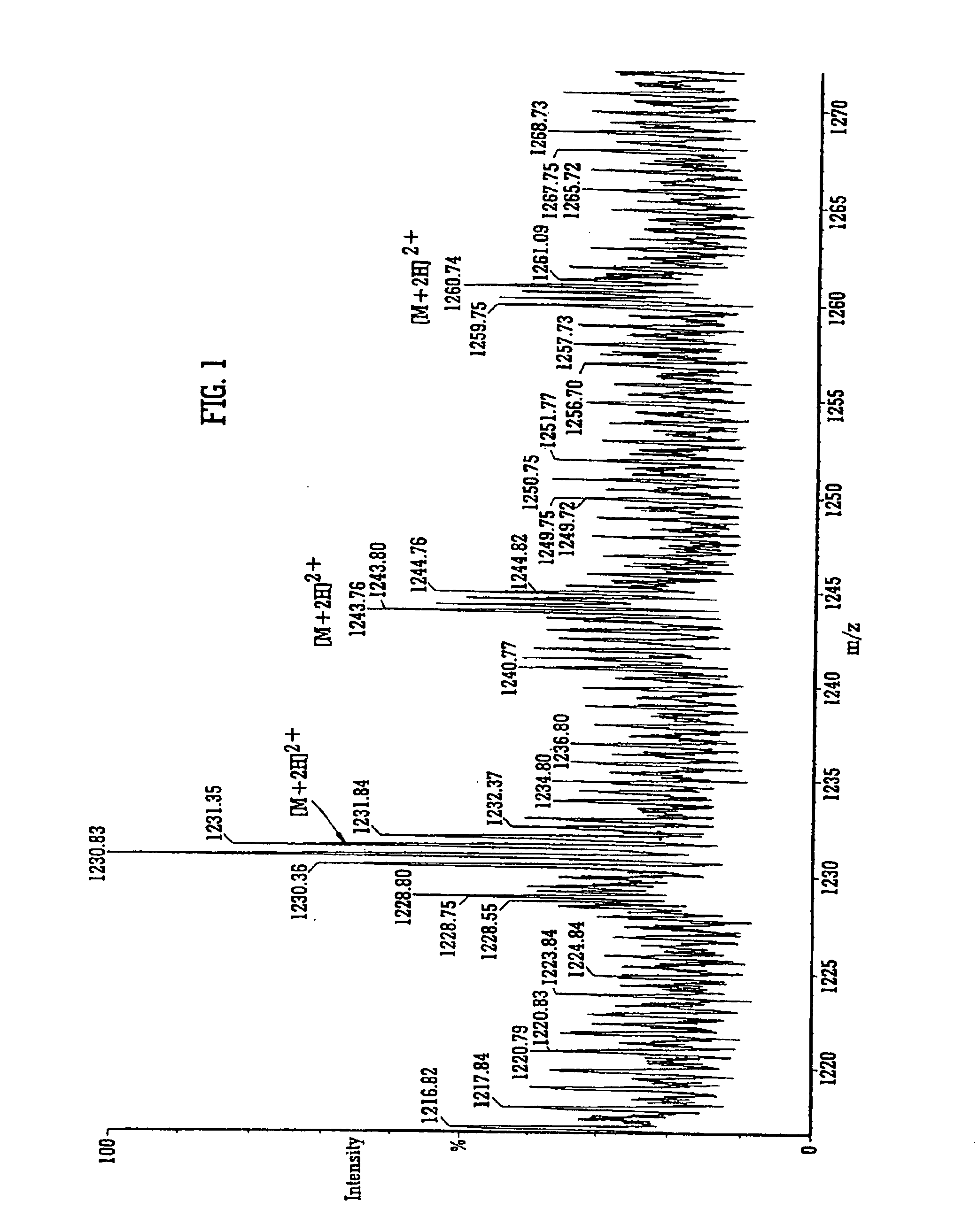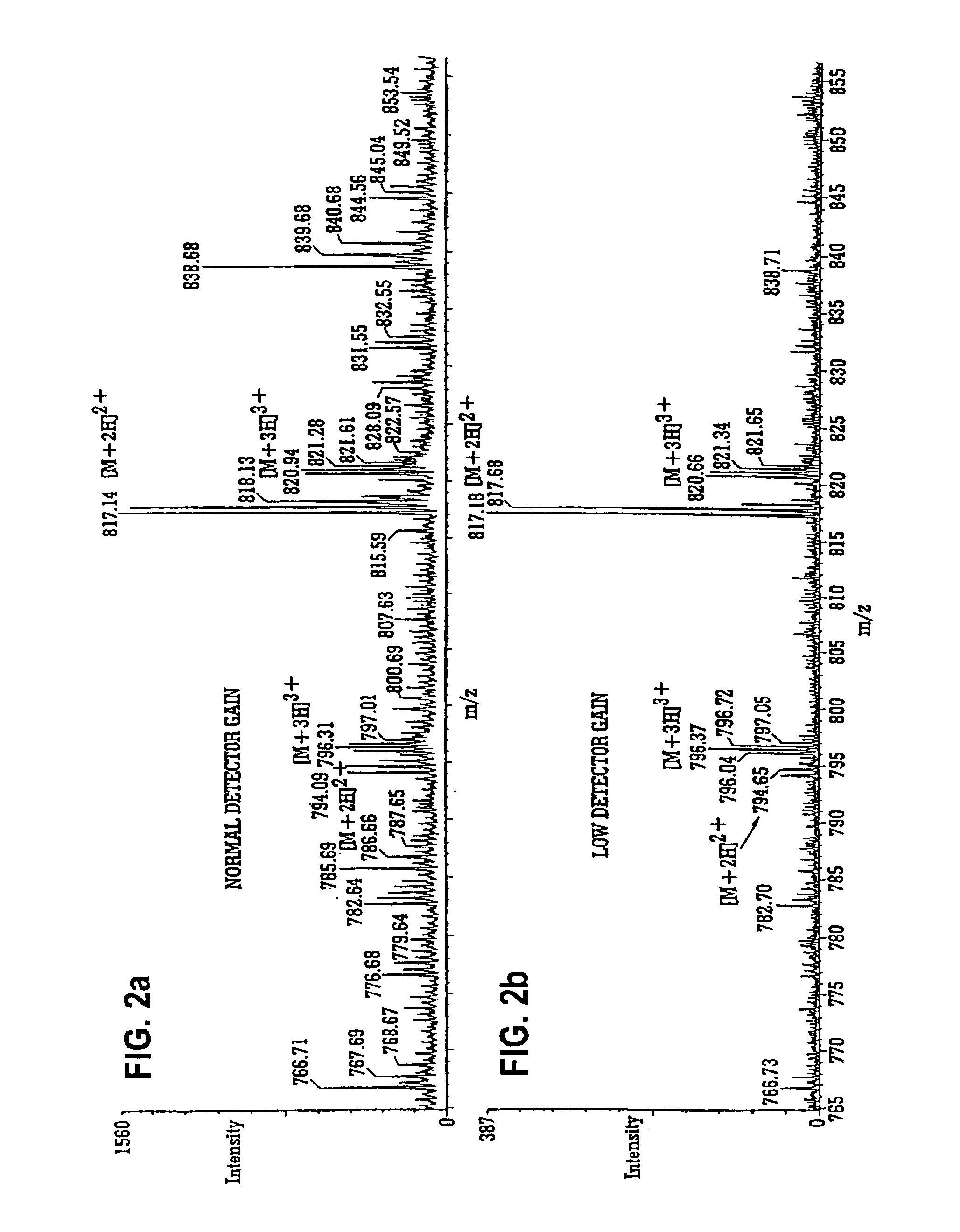Mass spectrometer
a mass spectrometer and mass spectrometer technology, applied in mass spectrometers, isotope separation, particle separator tubes, etc., can solve the problems of increasing the discriminator level, unparallel speed, and the limiting factor for protein identification is not the quality of ms/ms, so as to improve sensitivity, increase the delay time of the pusher electrode, and improve the effect of sensitivity
- Summary
- Abstract
- Description
- Claims
- Application Information
AI Technical Summary
Benefits of technology
Problems solved by technology
Method used
Image
Examples
Embodiment Construction
[0130]Various embodiments of the present invention will now be described. FIG. 3 shows the relationship of flight time in a drift region of a time of flight mass analyser versus drift time in an ion mobility spectrometer for various singly and doubly charged ions. An experimentally determined relationship between the mass to charge ratio of ions and their drift time through an ion mobility spectrometer is shown in FIG. 4. This relationship can be represented by an empirically derived polynomial expression. As can be seen from these figures, a doubly charged ion having the same mass to charge ratio as a singly charged ion will take less time to drift through an ion mobility spectrometer compared with a singly charged ion. Although the ordinate axis of FIG. 3 is given as the flight time through the drift region of a time of flight mass analyser, it will be appreciated that this correlates directly with the mass to charge ratio of the ion.
[0131]If a mass filter is provided in combinati...
PUM
 Login to View More
Login to View More Abstract
Description
Claims
Application Information
 Login to View More
Login to View More - R&D
- Intellectual Property
- Life Sciences
- Materials
- Tech Scout
- Unparalleled Data Quality
- Higher Quality Content
- 60% Fewer Hallucinations
Browse by: Latest US Patents, China's latest patents, Technical Efficacy Thesaurus, Application Domain, Technology Topic, Popular Technical Reports.
© 2025 PatSnap. All rights reserved.Legal|Privacy policy|Modern Slavery Act Transparency Statement|Sitemap|About US| Contact US: help@patsnap.com



